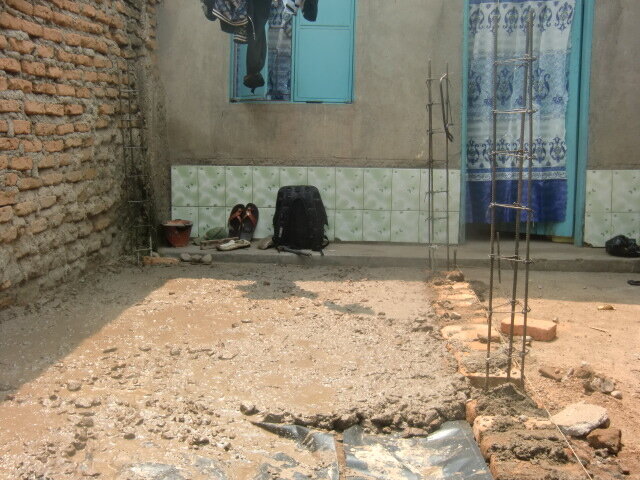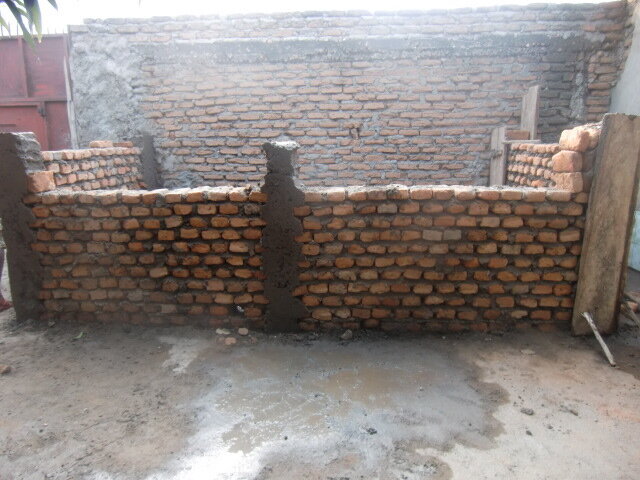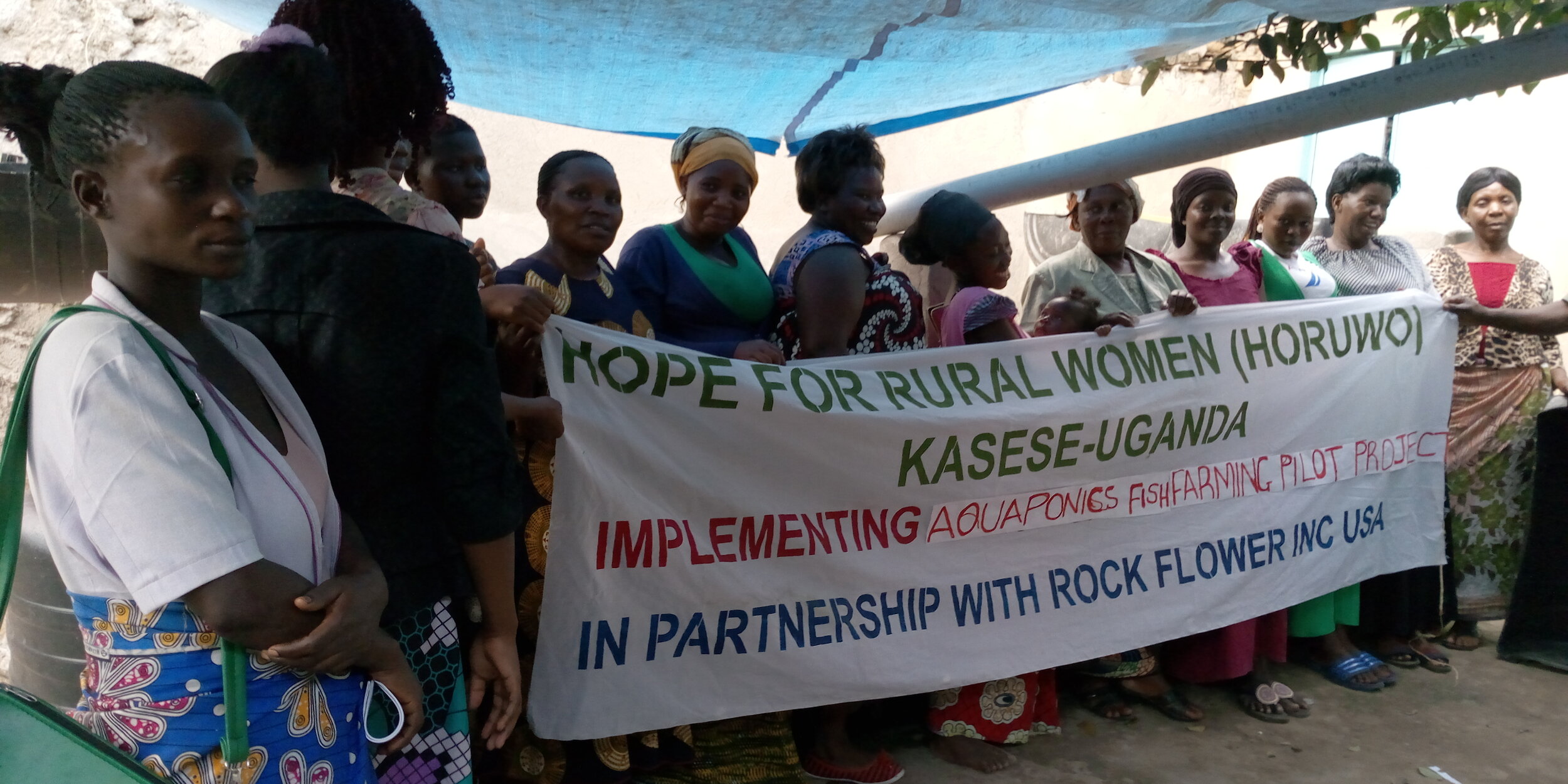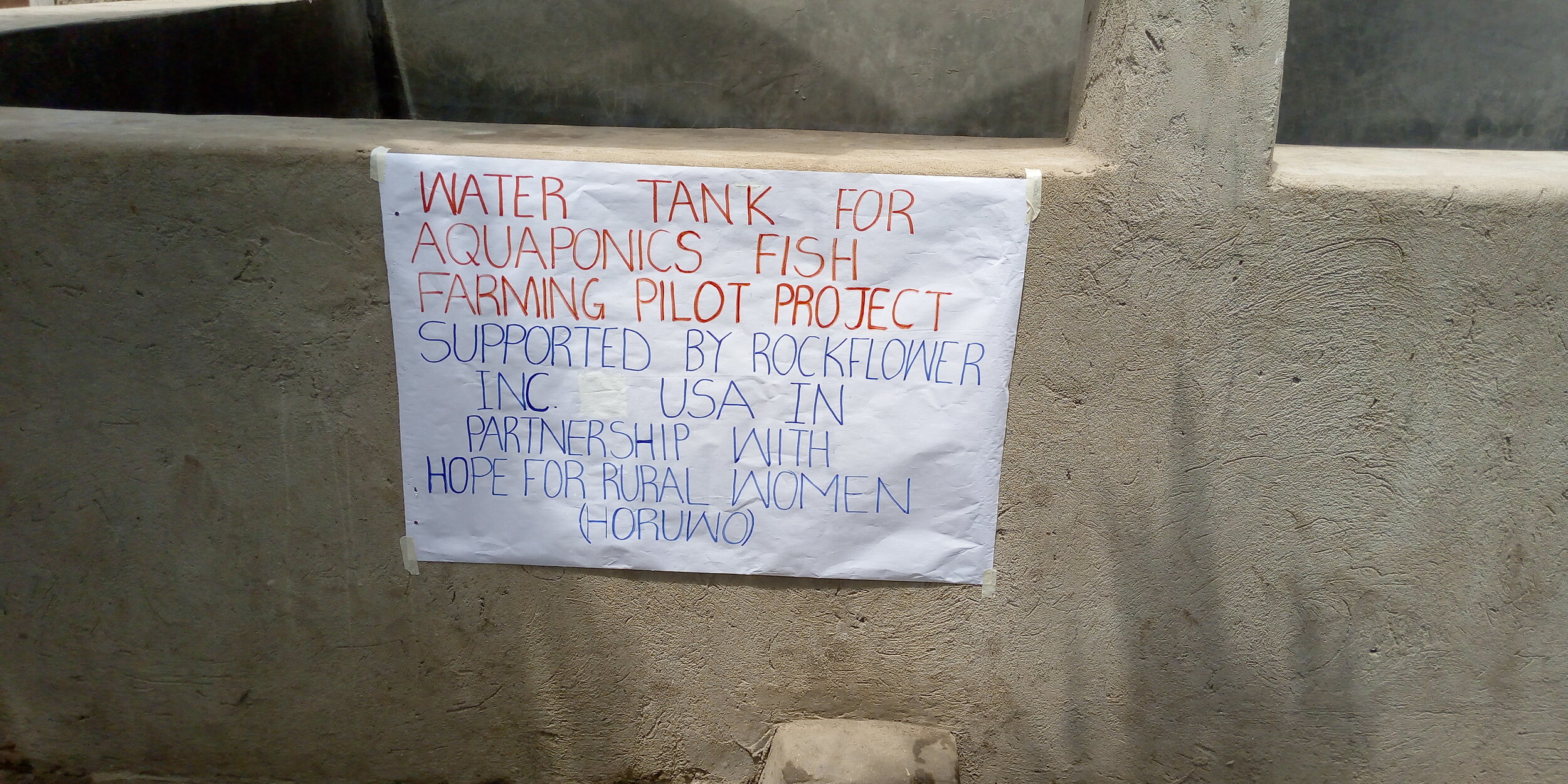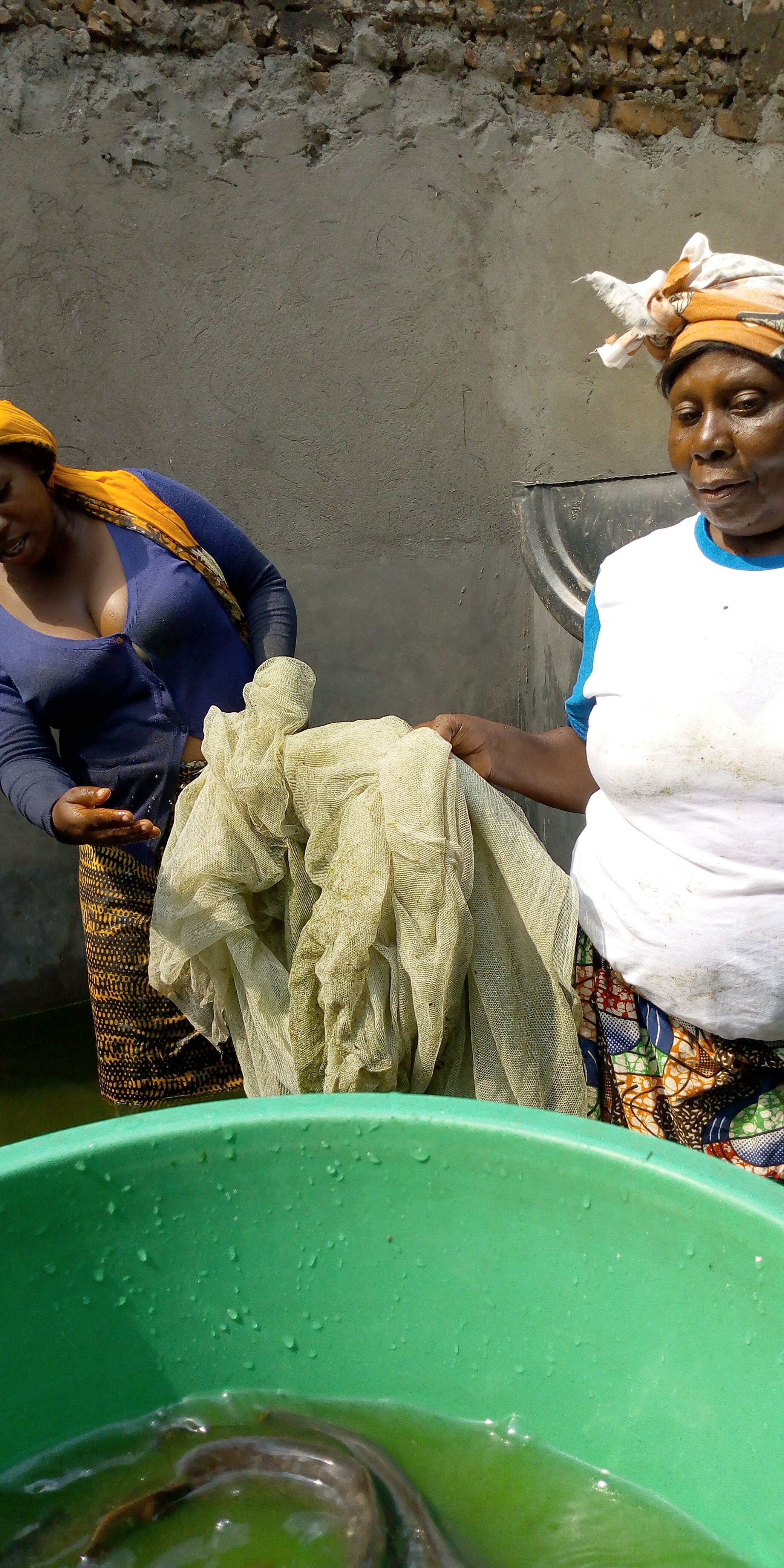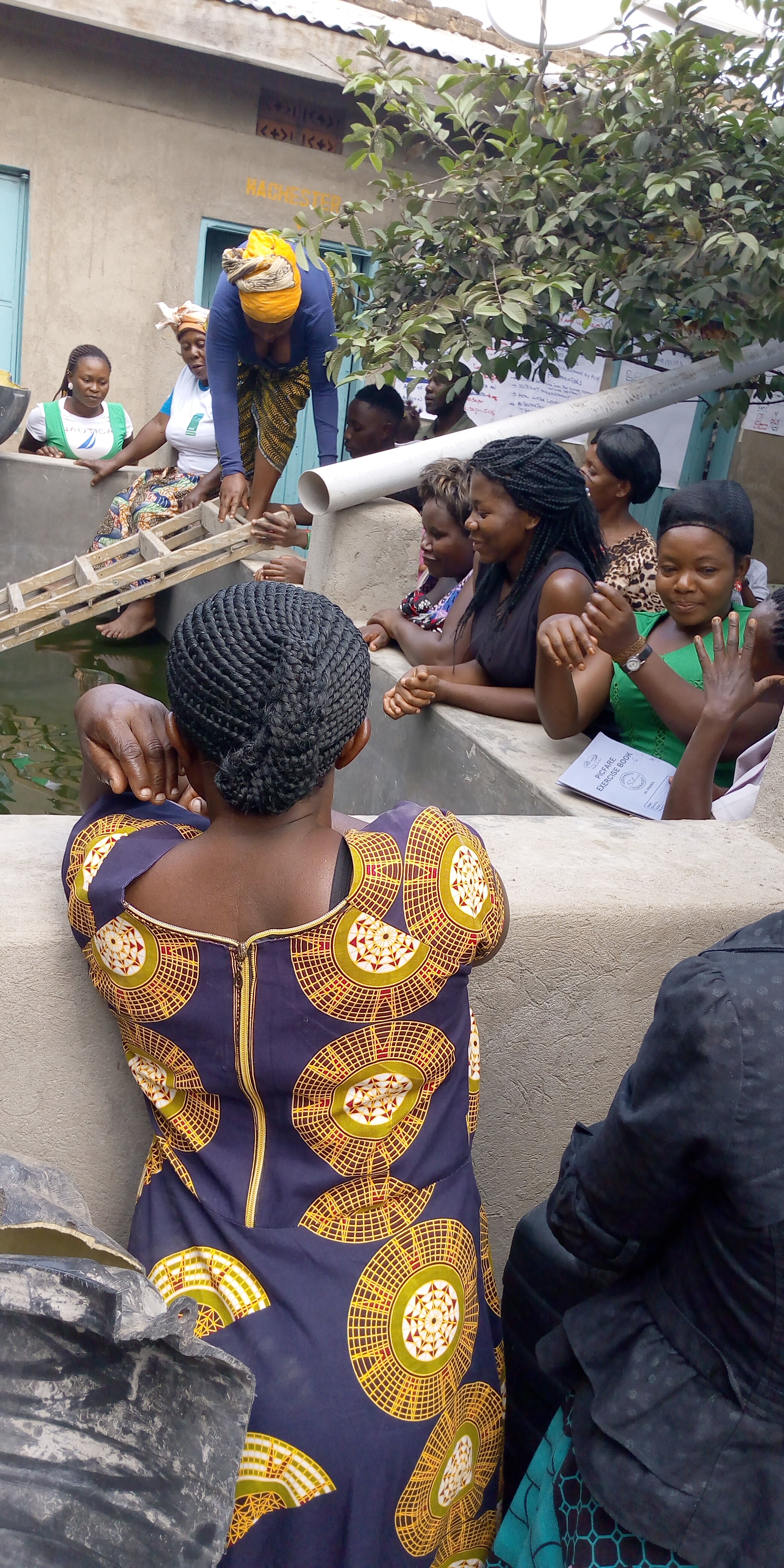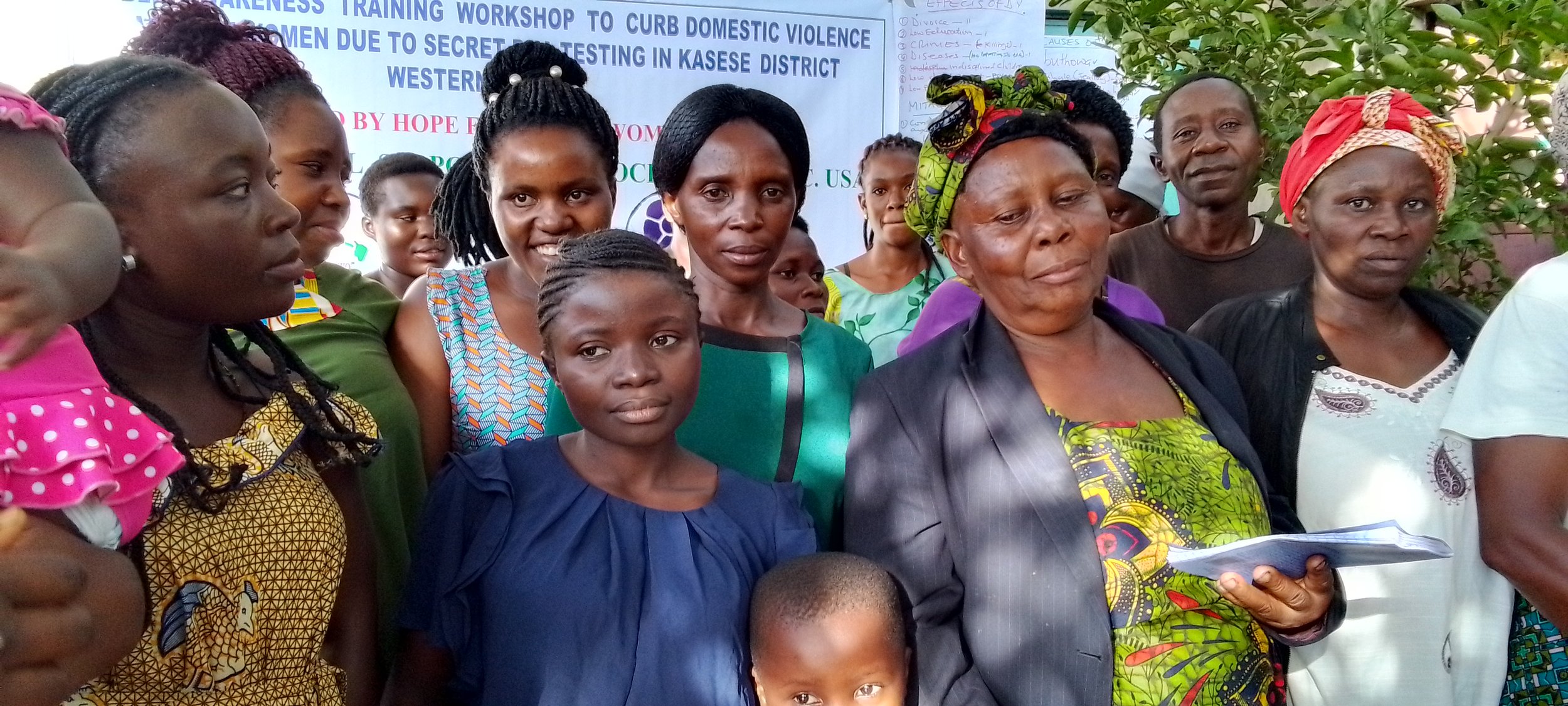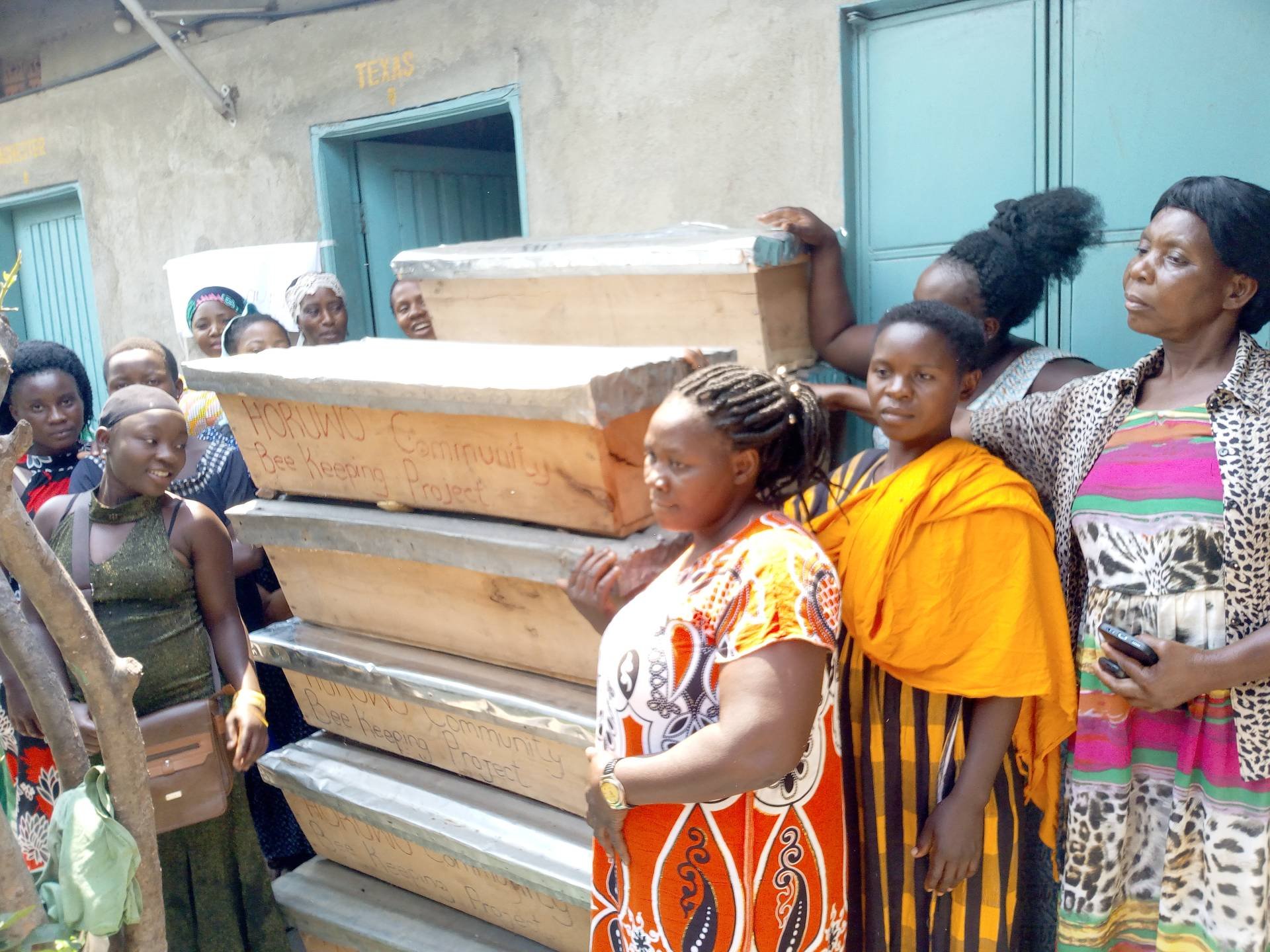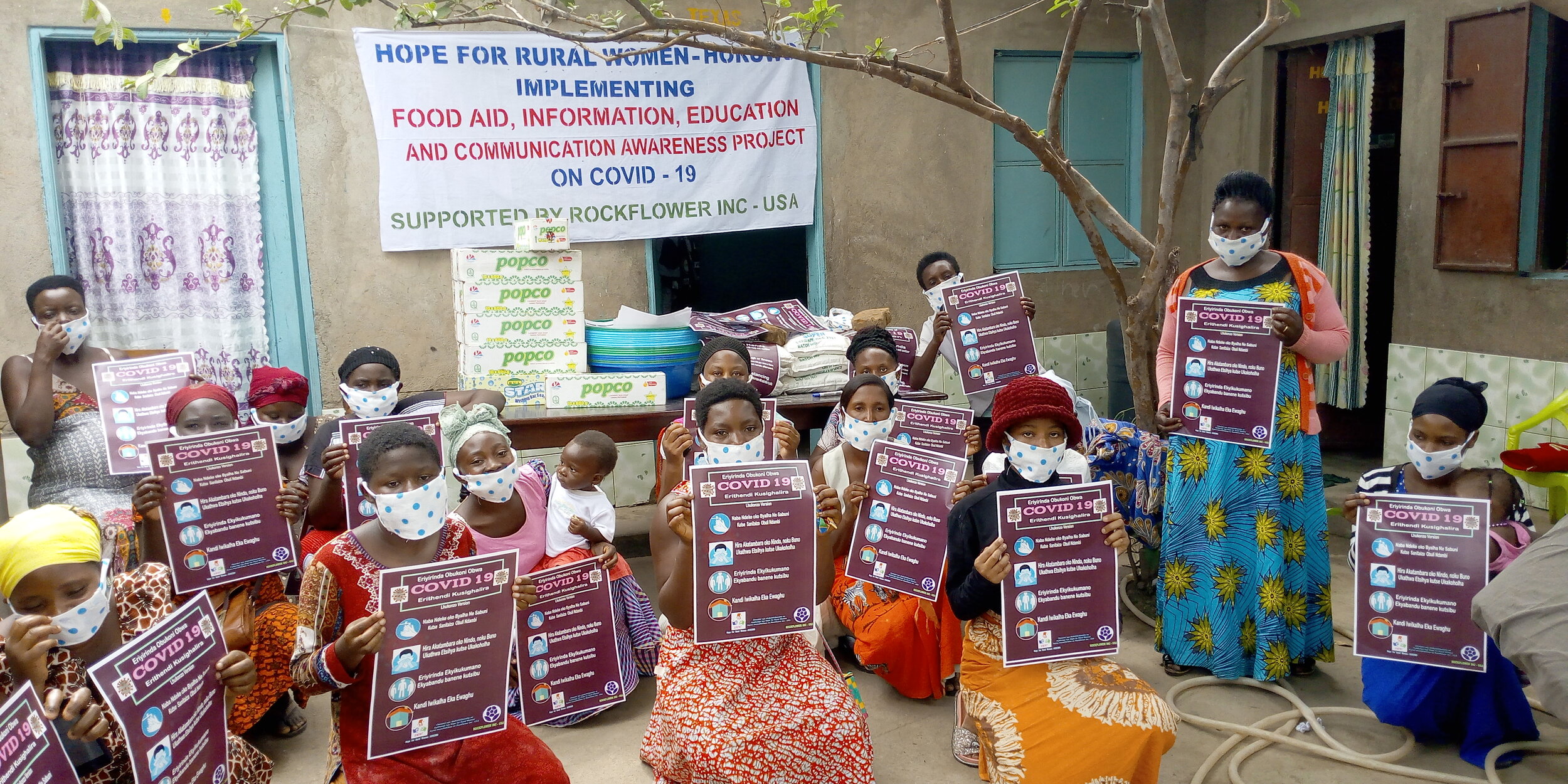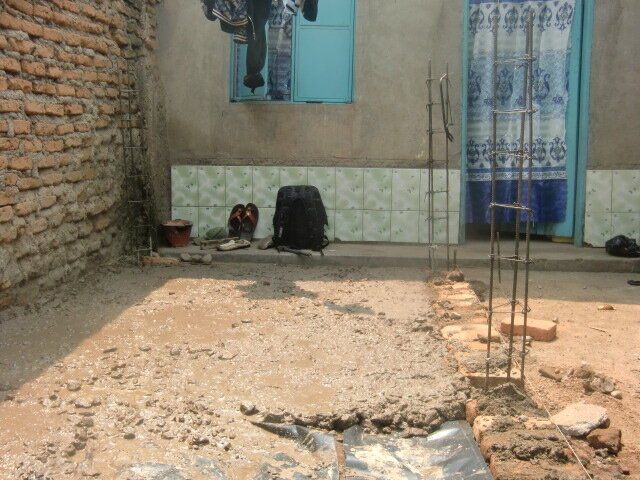Aquaponics Fish Farming Pilot Project
Location: Kasese, Uganda
Background
The effects of climate change, in particular the acute drought conditions are drastically affecting the food production base of rural women farmers in Kasese, Uganda. The shortage of food is causing a spike in prices, increasing the burden on local agriculture supply lines and causing many to go hungry. There is a growing need for new approaches to guarantee sufficient food supplies for the women and their communities in Kasese district, western Uganda and to develop Innovations in farming to protect the land and environment from further degradation.
The combination of food insecurity and poverty has had a devastating effect on the rural women of Kasese district. Women are engaging in prostitution as a means of survival and to put food on the table for their children, a practice exposing them to the dangers of unplanned pregnancies and scourge of HIV/AIDS.
Expected Outcomes
Building on the success of their Micro Gardens and Mushroom cultivation, Hope for Rural Women is establishing an Aquaponic Farm for Fish and Vegetable Production.
This pilot project will provide fish protein and food for expectant mothers, who are struggling to find adequate sources of nourishment and in particular protein. The lack of fresh vegetables and adequate sources of protein is having a negative effect on pregnant women in Kasese. This is exacerbated when they go into labor and suffer complications and need blood. By the time the hospital sends an ambulance to Fortportal blood bank or Mbara blood bank, the women in labor have already died. Fortportal is 90 Km away and Mbara over 200km from Kasese.
The issue of malnutrition among pregnant women in Kasese district is crucial and and needs urgent attention. The micro garden is doing a commendable work to partly address this challenge, but there is a need for supplementation with Aquaponic Fish farming. African catfish will be reared in in a concrete water tank with vegetables grown in a grow bed on top of the tank. The water from the the tank will be used to rear the fish and as ammonia accumulates in the tank, the water will be pumped to the grow bed which will have stones. The dirty water and ammonia will stick on the stones in the grow bed providing nutrients for the vegetables to grow well and then clean water returned to concrete tank. This kind of farming will provide fish protein and healthy vegetables to expectant mothers throughout the year. Vegetables are hard to get because of the high prices involved, while the nearest body of water, Lake George that used to provide fish protein to the Kasese community has been closed forcing the community to feed on fish bones.
The fish and vegetable protein will be availed to at least 50 member's of the organization to add to their daily meals while the surplus will be sold to earn them income and reinvest back into the Aquaponic farming to sustain the project.


